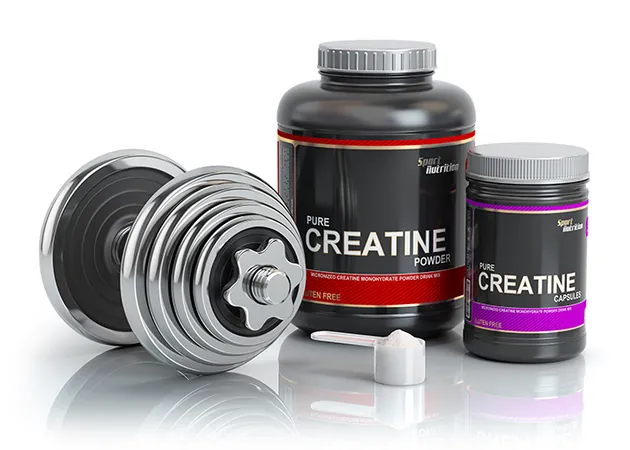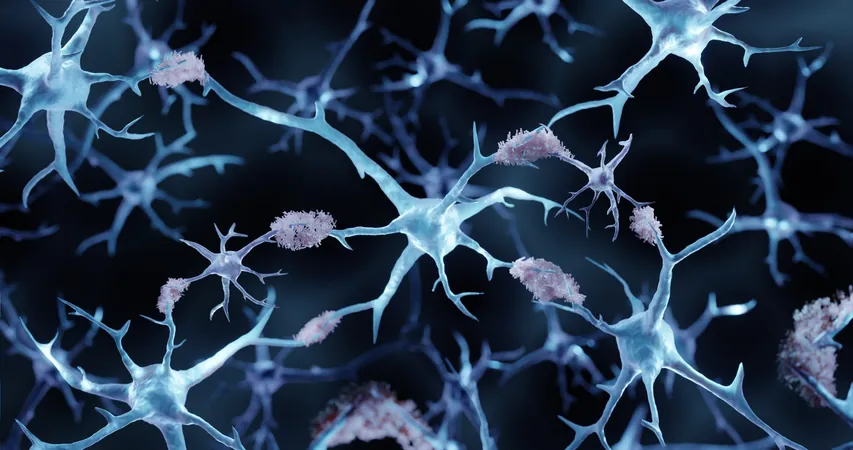
Could Creatine Be the Game-Changer for Alzheimer’s Patients?
2025-06-05
Author: Yu
Groundbreaking Research on Creatine and Cognition
For years, athletes have known the power of creatine in enhancing physical performance. But what if this popular supplement could also sharpen the minds of those battling Alzheimer’s disease? A pioneering study from the University of Kansas Medical Center suggests it might just do that.
The First of Its Kind: Exploring Creatine for Alzheimer’s
This innovative pilot study, marking the first exploration of creatine's effects on Alzheimer’s or dementia patients, primarily aimed to evaluate the safety and feasibility of supplementation. However, researchers discovered something intriguing: creatine seemed to spur moderate enhancements in both working memory and executive function.
Dr. Matthew Taylor, who led the study known as Creatine to Augment Bioenergetics in Alzheimer's (CABA), expressed optimism, stating, "These preliminary results suggest that there are good things happening here. Creatine appears to be beneficial. This lays the groundwork for more extensive clinical trials."
Energy Metabolism: A Key to Cognitive Function
Alzheimer’s disease disrupts the brain's energy production and usage. Creatine, an organic compound found in muscles and in the brain, plays an essential role in energy metabolism. By delivering additional creatine to the brain, researchers hope to enhance energy levels and thereby invigorate cognitive processes.
A Higher Dose for Greater Impact
While a typical daily dose of creatine for athletic enhancement is around 5 grams, this study escalated that to 20 grams to optimize delivery to the brain. Nineteen participants aged 60 to 90, recruited through the KU Alzheimer’s Disease Research Center, consumed creatine monohydrate, mixed into their favorite beverages, daily for eight weeks.
Blood samples and magnetic resonance spectroscopy imaging were utilized to track changes in brain creatine levels over the study period. Remarkably, an 11% increase in brain creatine was documented, signaling a significant response to the supplementation.
Promising Cognitive Enhancements
Using the NIH Toolbox Cognition Battery, researchers assessed cognitive improvements at the study's start and conclusion. Participants exhibited notable growth in working memory, which Taylor likened to memory skills needed for classic memory games. Additionally, there was a noteworthy enhancement in executive function—vital to concentration and decision-making abilities that often decline in Alzheimer’s.
Taylor acknowledged the study's limitations, such as its small sample size and lack of a control group. Nevertheless, it provides the first evidence supporting creatine's feasibility as a cognitive aid in Alzheimer’s patients.
Future Research: Unraveling the Mysteries of Creatine
Looking ahead, researchers aspire to delve deeper into how creatine influences cognition and potentially mitigates brain inflammation and oxidative stress—two major contributors to neurodegenerative diseases. As Dr. Taylor aptly notes, "We still have much to learn about the role of this molecule in the brain."
As this research unfolds, the hope is that creatine could become a beacon of optimism for millions grappling with Alzheimer’s, possibly heralding a new era in treatment for cognitive decline.





 Brasil (PT)
Brasil (PT)
 Canada (EN)
Canada (EN)
 Chile (ES)
Chile (ES)
 Česko (CS)
Česko (CS)
 대한민국 (KO)
대한민국 (KO)
 España (ES)
España (ES)
 France (FR)
France (FR)
 Hong Kong (EN)
Hong Kong (EN)
 Italia (IT)
Italia (IT)
 日本 (JA)
日本 (JA)
 Magyarország (HU)
Magyarország (HU)
 Norge (NO)
Norge (NO)
 Polska (PL)
Polska (PL)
 Schweiz (DE)
Schweiz (DE)
 Singapore (EN)
Singapore (EN)
 Sverige (SV)
Sverige (SV)
 Suomi (FI)
Suomi (FI)
 Türkiye (TR)
Türkiye (TR)
 الإمارات العربية المتحدة (AR)
الإمارات العربية المتحدة (AR)